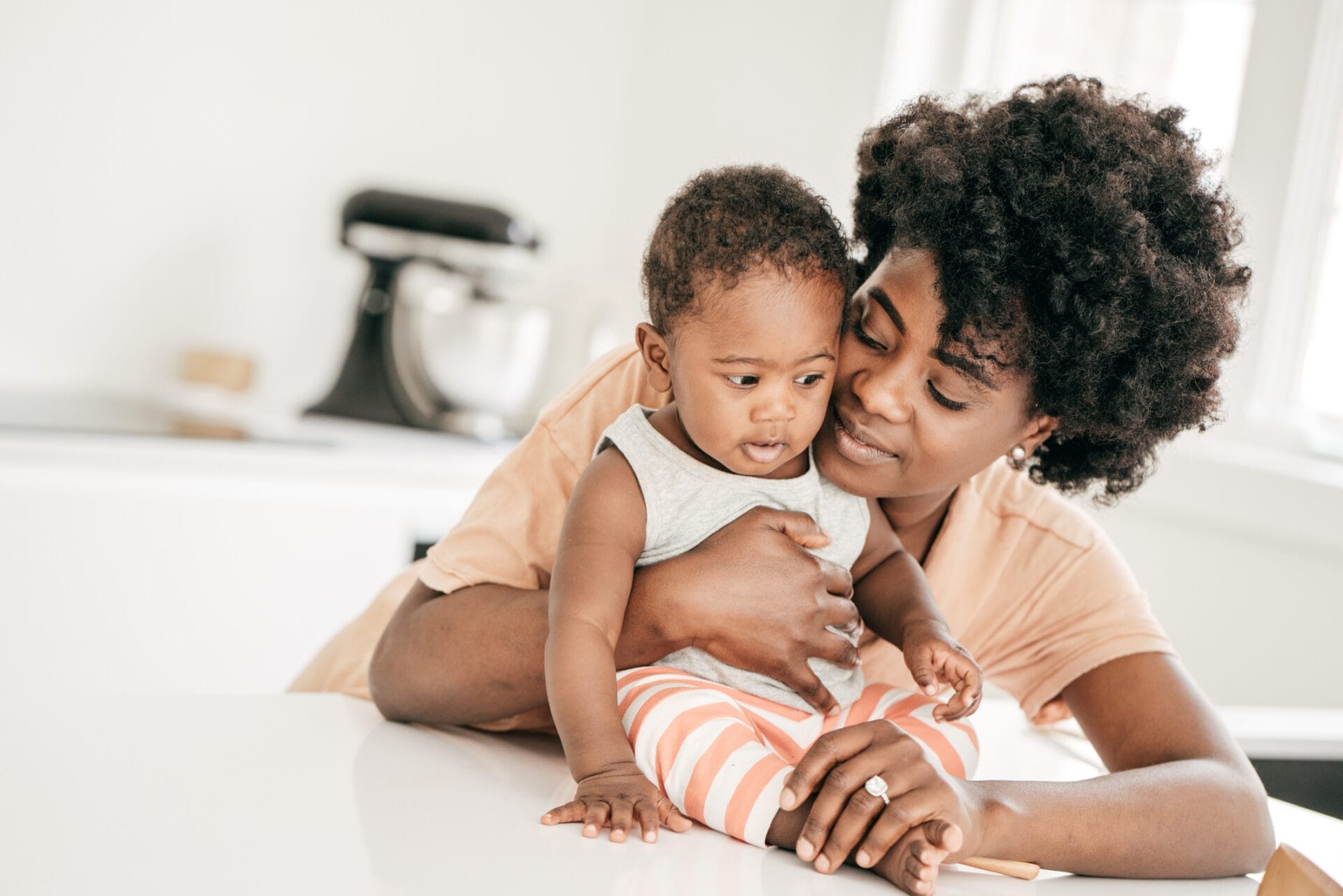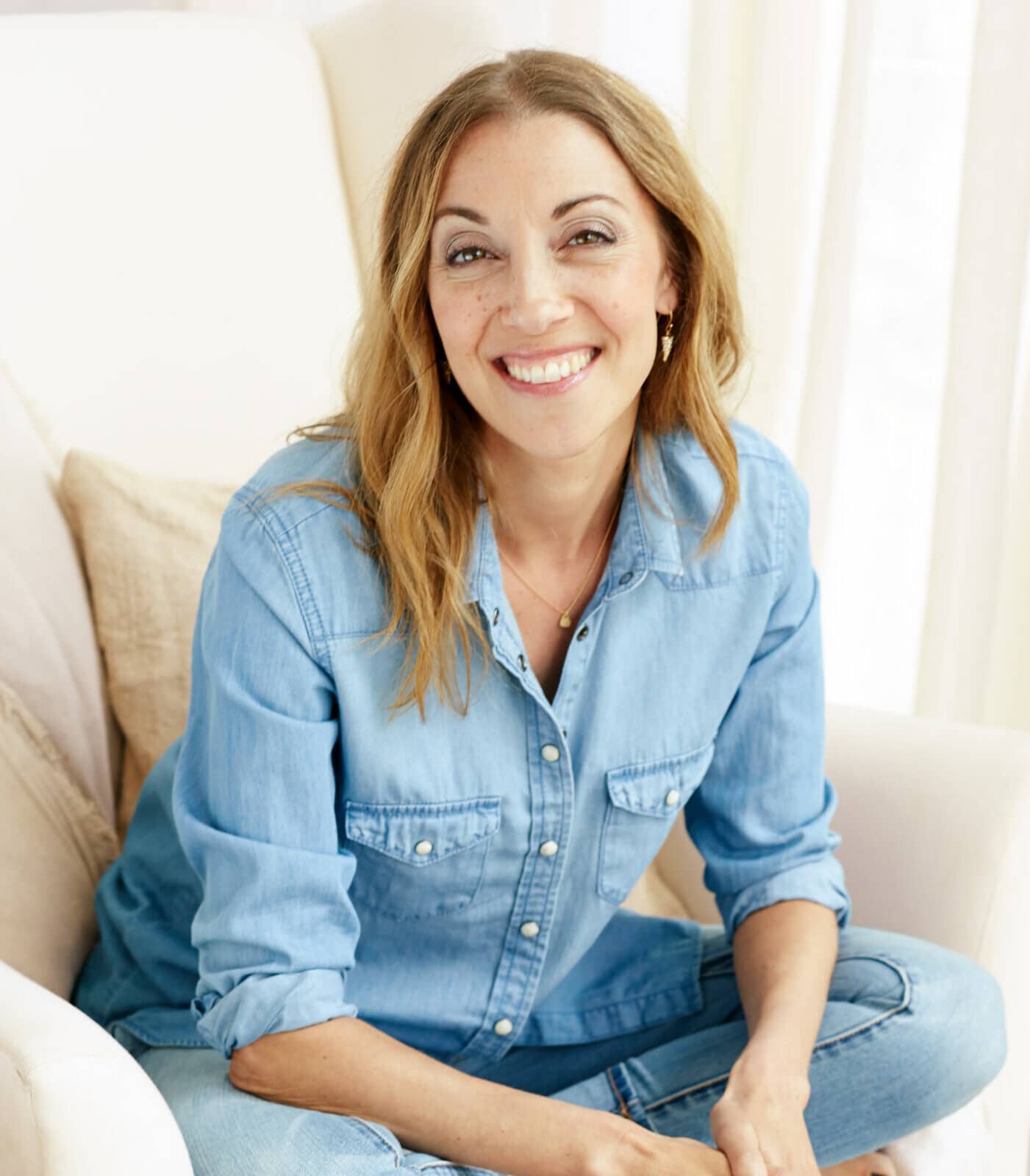We are proud to say that these posts are not sponsored. Our editorial team of Bobbie moms and writers personally select each featured product. If you buy something through our links, we may earn an affiliate commission, at no cost to you.
Having experienced perinatal depression and PTSD from infertility and multiple IVF cycles, I knew I was at greater risk for postpartum depression. Sure enough, when I took the Edinburgh Postnatal Depression Scale three days after my scheduled C-section, I failed. Miserably. But ever the overachiever, I assured the nurse that it was okay, I was already doubling up on therapy appointments. I got this.
But, as it turned out, I didn’t get it. I continued suffering through postpartum depression and anxiety despite my naive attempts to “therapy” my way out of it. At the six-week follow-up with my ob/gyn, I took the screening again. And failed, again. My doctor said she could prescribe me antidepressants, but I shrugged her off. It’s okay. I’ll manage. I’ll power through just like I always do. Just like Black women have done for centuries before me.
According to the American Psychiatric Association, roughly 10-15% of white women experience postpartum depression while that percentage is even higher for women of other racial/ethnic backgrounds. One study found that 29-44% of Black women experience postpartum depressive symptoms, which includes crying for seemingly “no” reason; loss of interest or pleasure in activities once enjoyed; changes in appetite; feeling worthless/like a bad mom; and trouble sleeping or sleeping too much among others.
Fast forward two years and I found myself still struggling. I’d even switched therapists to someone who specializes in PPD, infertility and IVF, etc.; however, it still wasn’t enough. I wasn’t going to be able to therapy my way out of this one. I needed something else. I needed help and I was finally ready and willing to admit it.
Earlier this year—about two years since giving birth—I scheduled an ADHD evaluation with a psychiatrist at the recommendation of my therapist. I’d recently quit my full-time journalism job to return to full-time freelance writing, but I was having a hard time focusing and had frequent anxiety attacks about money that would often keep me up at night. I wasn’t sure if it was “mom brain,” entrepreneur brain, or something else. After a written evaluation and consultation, the psychiatrist informed me it wasn’t ADHD, but rather “untreated anxiety and lingering depression.” He suggested Zoloft.
I was initially hesitant. After all, I’d rejected recommendations to take medication before. I was a new mom and, at the time, I was nervous about how the medicine would interact with breastfeeding. Couple that anxiety with stigma in the Black community surrounding mental health and I truly thought I could power my way through. But after two years of struggling, something had to give. I go to therapy twice a month; do yoga several times a week (hell, I’m even a certified yoga teacher!); I meditate with the best of them and journal on a regular basis as well.
Depression and anxiety was not something I could self-care my way out of. I needed reinforcements and I was willing to try medication. Full disclosure: after nursing for two years, I stopped in December and began taking Zoloft in January; however, we are planning to have another child in the future and I asked my doctor if it would be safe to continue taking sertraline while pregnant and breastfeeding. He assured me that it was (but you should always check with your doctor to address your unique medical needs).
I reached out to another mom friend who’d started taking Zoloft to combat PPD and she also recommended it, so I agreed to take it. And I haven’t looked back. If anything, I wish I’d done it sooner. I wish I’d taken my ob/gyn up on her initial offer, but I am looking forward to hopefully enjoying more of my pregnancy and the postpartum period next time around.
My advice to birthing parents and parents in general is this: you don’t have to suffer. You don’t have to go it alone. Help is available. And asking for help doesn’t make you weak. Quite the contrary, it demonstrates enormous strength, courage and vulnerability.
My therapist often asks me when confronted with a challenging situation to imagine what I’d want my daughter to do, then advises me to do that. I would not want her to suffer needlessly. I would want her to seek out the help she needs and do what she needs to do to feel better. Taking antidepressants doesn’t make you a bad mom. Taking care of yourself and modeling that care for your children makes you a good mom.


